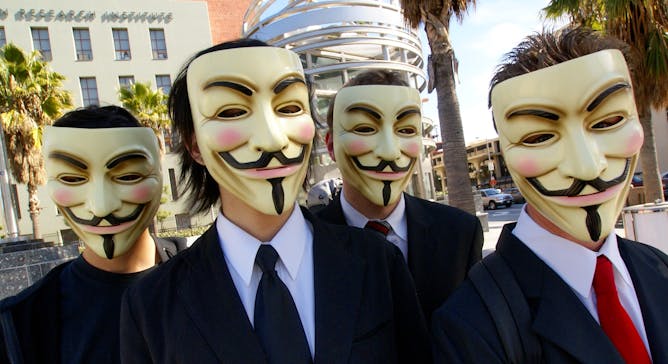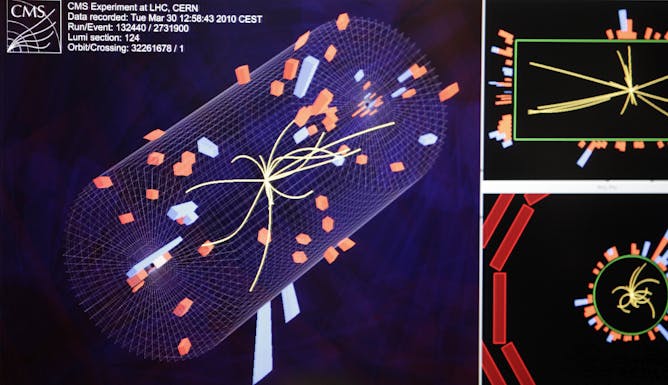
The Capital Gazette in Annapolis lost five staffers in a shooting.
AP/Patrick Semansky
Jennifer E. Moore, University of Minnesota Duluth; Michael J. Socolow, University of Maine
Violence against journalists is on the rise. Many people don't realize that such acts have a long tradition in the US, where partisan rancor was once a hallmark of American journalism.
|

What are the ethics of anonymous resistance?
Vincent Diamante
Michael Blake, University of Washington
An expert argues why the anonymous op-ed in The New York Times can hardly be considered an act of civil disobedience and why it might make things even worse in the Trump administration.
|

The activity during a high-energy collision at the CMS control room of the European Organization for Nuclear Research, CERN, at their headquarters outside Geneva, Switzerland.
AP Photo
Todd Adams, Florida State University
The Large Hadron Collider has generated mind-blowing science in the last decade – including the Higgs boson particle. Why is the LHC so important, and how will physicists use it in the years to come?
|
|
|
|
|
Arts + Culture
|
-
Alan J. Kellner, Northwestern University
Many Americans seem to like seeing communist ideas in action, but have a visceral reaction to the word ‘communism.’ Might it be time to refresh an old ideology with a new set of terms?
-
Magda Konieczna, Temple University
Instead of taking pride in how quickly they cover the same stories as everyone else, these organizations make public service journalism their top priority.
|
|
|
|
|
|
Today’s chart
|
-

 |
Rebecca Hanson
University of Florida
|
| |